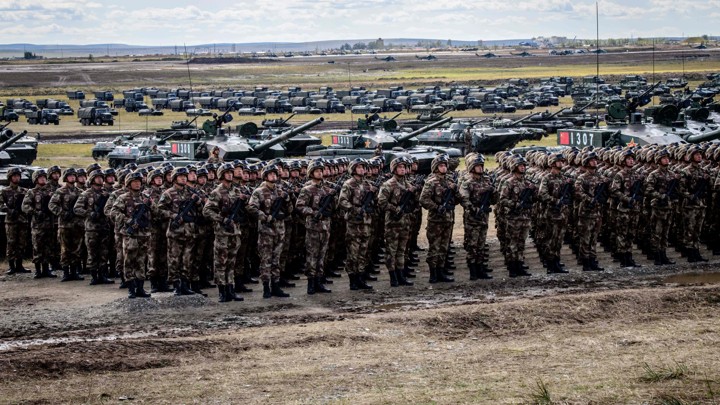
Here’s how the U.S. can avoid driving the two countries together.

On the military side, Russia and China talk a lot about their enduring friendship, but there are decades of distrust between them. After serious border clashes along the Amur River in 1968-9 (near the site of this week’s friendly exercises), the Chinese side of the border was so intensely bombed it looked like a moonscape. The two neighbors didn’t settle their last territorial dispute until 2008. Russia backed away from an imminent nuclear attackagainst China only after the U.S. threatened its own nuclear counterattack.
Beyond the hype, so far there is little sign of the intense cooperation that exists between the U.S. and its military allies in Europe and Japan. Russia sells China weapons—more than $10 billion since 2011—mostly because it needs the hard currency. They are now jointly developing drones.
Both countries are also (separately) modernizing their militaries. China wants to be able to deny access to American ships in the region, and train its forces to operate beyond China’s borders. The Chinese military has little experience abroad, as the young Chinese soldier hinted when he said this week’s exercise was his first large overseas deployment. The Russian and Chinese navies increasingly do small exercises together as they both try to deter U.S. influence in Asia.
Importantly, there is so far no formal security pact—nothing akin to NATO in Europe—that requires China and Russia to defend each other and that could embed this relationship in a mutually beneficial package.
Economic relations follow the same pattern: historic distrust, much more hype than realism about their current partnership, but a gentle trend towards more cooperation. For example, a much-celebrated 2015 deal enabling China to buy Russian natural gas now seems anemic, slowed by disputes over pricing, pipeline routes, and Chinese resentment over Russia’s negotiation tactics. Trade between the two increased 20 percent last year (to $84 billion) but is still dwarfed by China’s trade with the U.S. ($635 billion in 2017). This July, China Development Bank loaned a Russian state-owned bank over $9 billion to build infrastructure connections between the two countries. It’s an eye-popping number, but astute observers think much of it won’t materialize.
China’s jaw-dropping family separation policy
Chinese businessmen have told me they are hesitant to invest in Russia because it’s “riskier than Congo” and “unpredictable.” Despite some aligned economic interests, many Russians don’t like the Chinese market much. The distrust is mutual. A history of border conflicts and soured business deals has made economic relations rocky. Although the two countries’ governments sometimes resent the United States, they often differ on major geopolitical issues. Xi’s Belt and Road Initiative (and its militarization of the trade routes) has reduced Russia’s influence in Central Asia. China bristles at Russia’s annexation of Crimea, its military aid to regional rivals such as India and Vietnam, and its support for the Afghan Taliban.
Where does all this lead? China has traditionally eschewed formal alliances, and Xi reaffirmed that policy this April. So far, there is no China-Russia “bloc” to worry about. But make no mistake: The Trump administration’s tough line on trade and the way some U.S. politicians and members of the press seem to treat China as the new enemy is dangerously close to becoming a self-fulfilling prophesy.
If the U.S. wants to avoid driving Xi into Putin’s arms, that doesn’t necessarily mean it has to capitulate to Xi’s demands. The U.S. would do well to be clear about where its lines are and enforce them consistently, as it is now doing in the South China Sea. At the same time, the U.S. can hold out an open hand to cooperate with China wherever possible, such as on the climate change deal agreed to in 2014. This will create the goodwill that makes future crises easier to work out. It’s not too late.
We want to hear what you think about this article. Submit a letter to the editor or write to [email protected]




